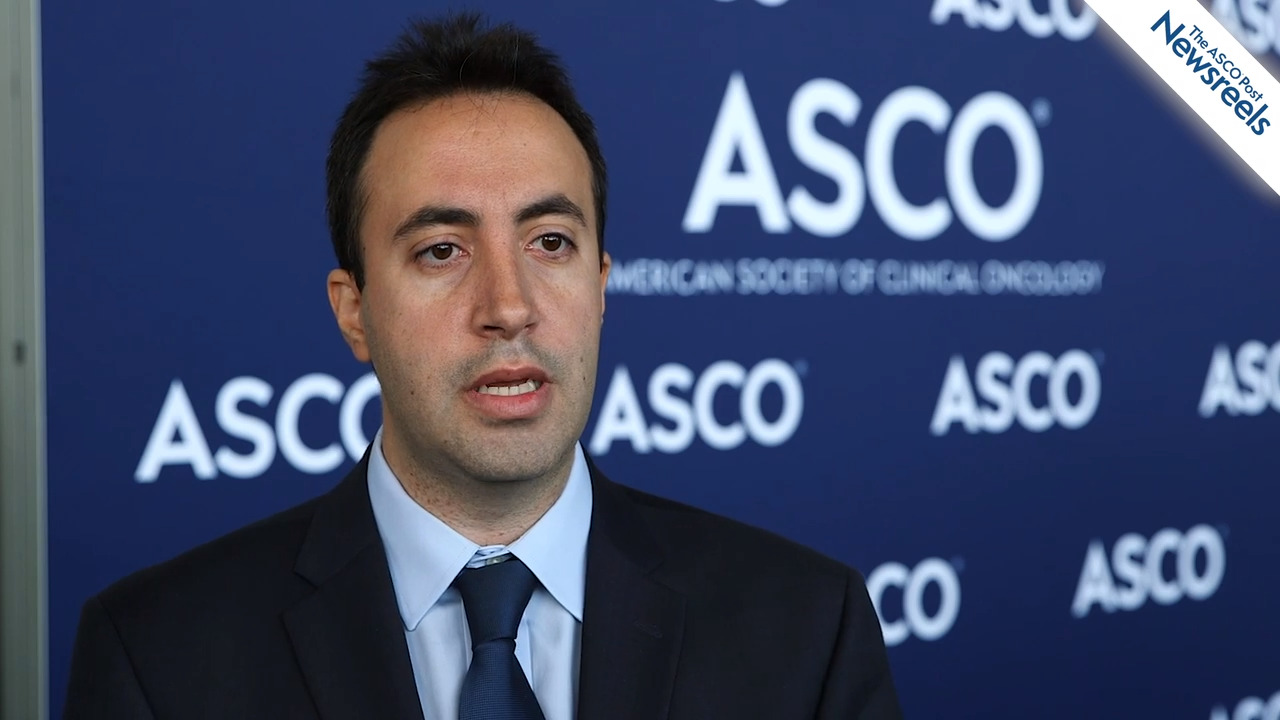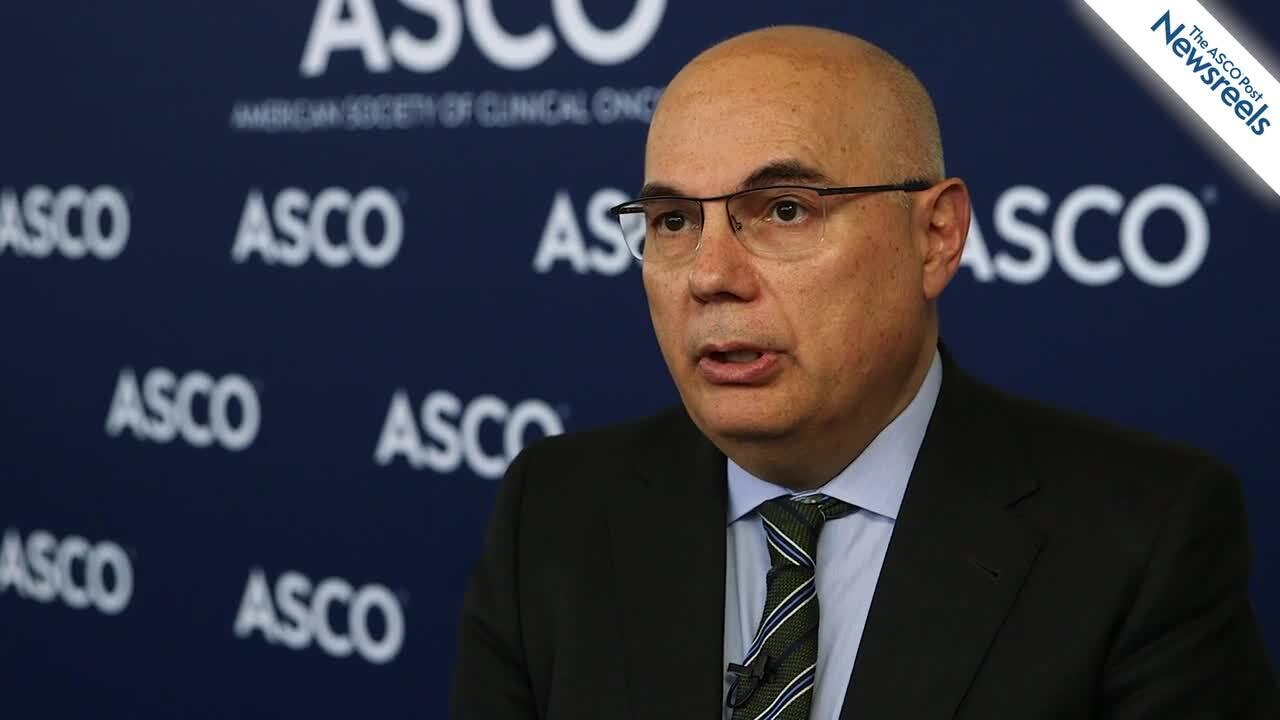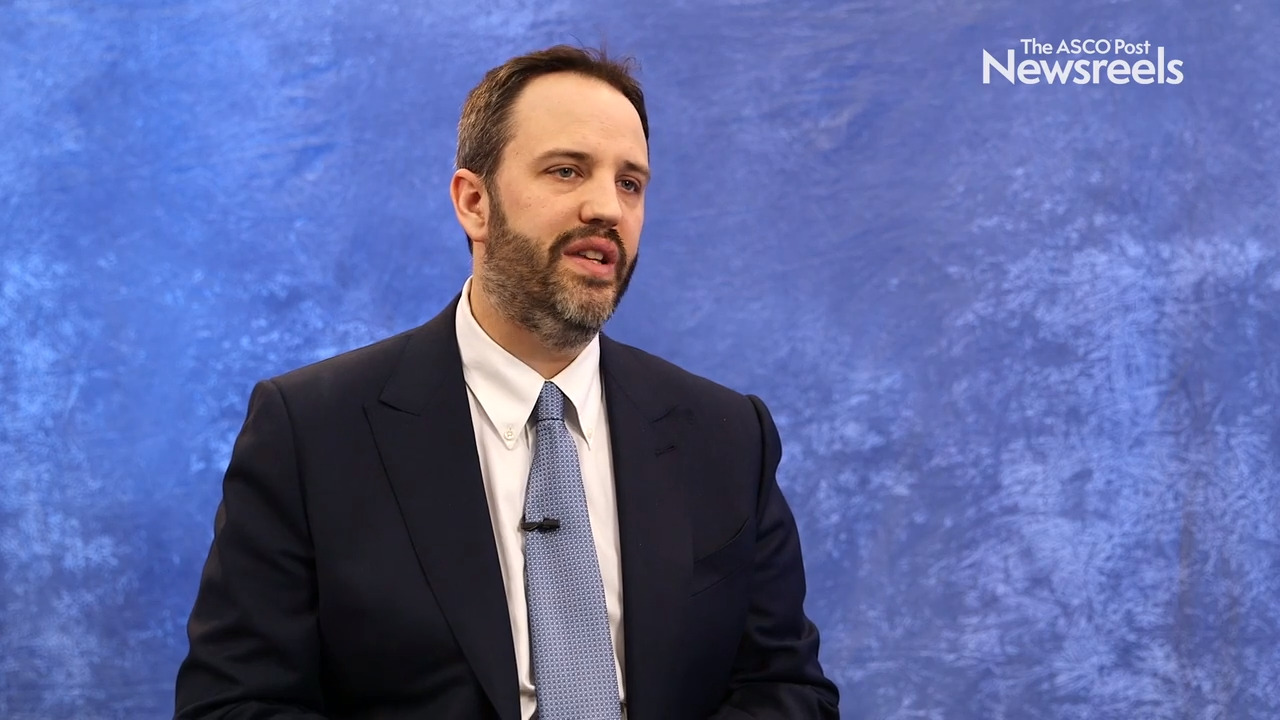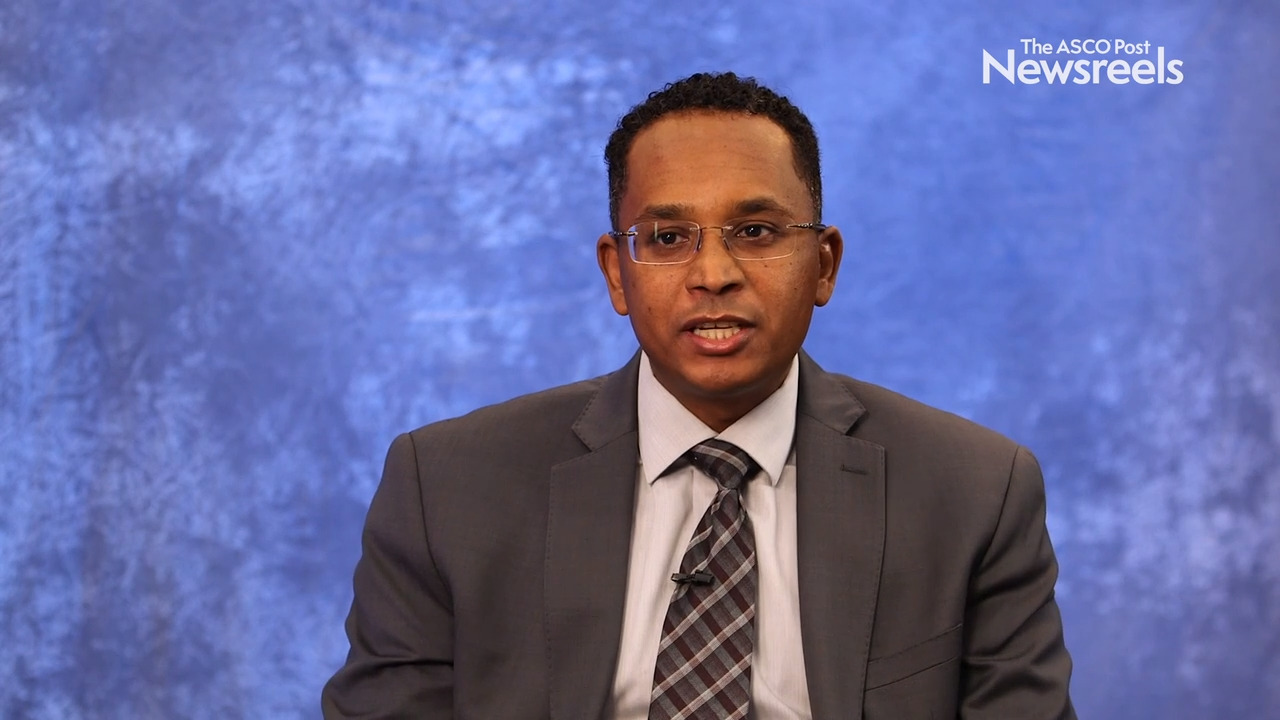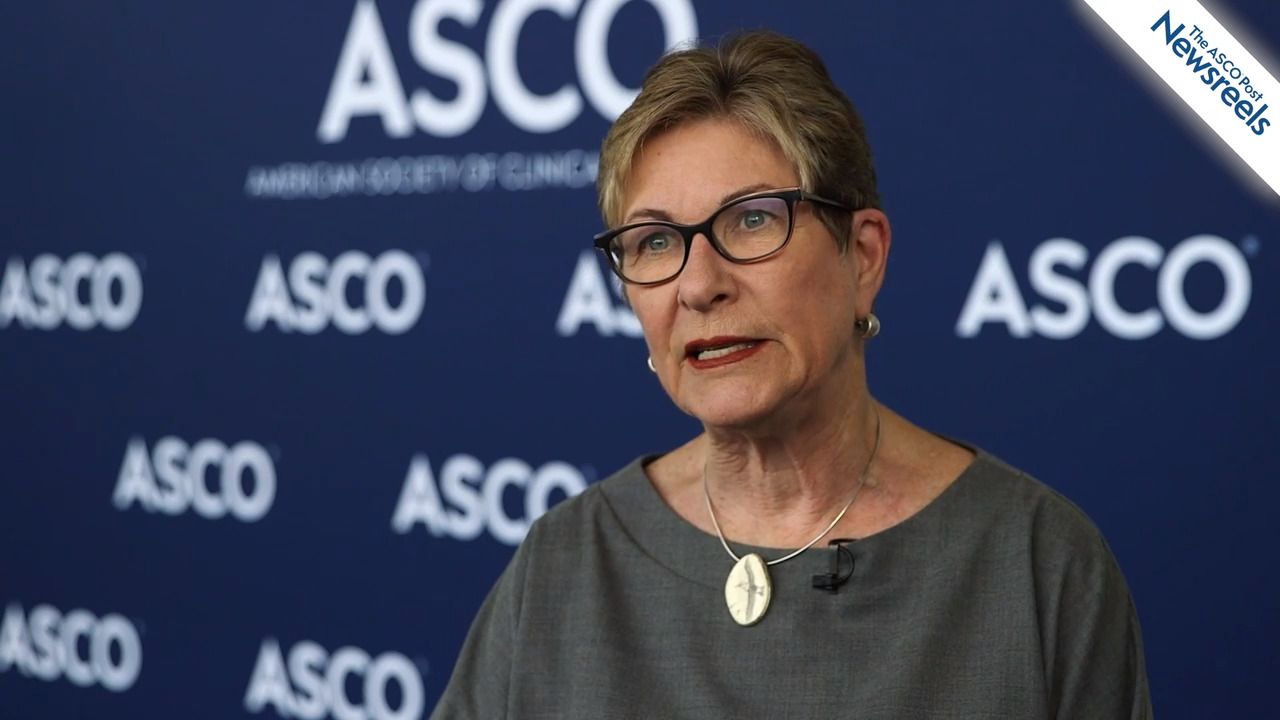Lee S. Schwartzberg, MD, FACP: 2019 Update on the ACCC Immuno-Oncology Institute: Using Immunotherapy in the Community Setting
2019 ASCO Annual Meeting
Lee S. Schwartzberg, MD, of the West Cancer Center, reports on this past year’s progress of the ACCC initiative to speed adoption of immunotherapeutics in community practices.
Kamal Chamoun, MD, of University Hospitals Seidman Cancer Center, discusses how better insurance coverage determines not only the ability of patients with multiple myeloma to afford high-priced oral medications, but their survival of the disease (Abstract LBA107).
Josep Tabernero, MD, PhD, of the Vall d’Hebron Institute of Oncology, discusses phase III findings of the KEYNOTE-062 study showing that, for some patients with advanced gastric or gastroesophageal junction cancer, pembrolizumab may improve survival and may be an effective alternative to chemotherapy, with fewer side effects (Abstract LBA4007).
Justin F. Gainor, MD, of Massachusetts General Hospital, discusses updated findings from the ARROW study in which BLU-667, a selective RET inhibitor, demonstrated clinical activity and tolerability in patients with advanced RET fusion–positive non–small cell lung cancer (Abstract 9008).
Hani M. Babiker, MD, of the The University of Arizona, discusses an emerging treatment that inhibits the mitotic spindle and disrupts tumor cell growth. The method has been approved by the FDA to treat some cancers and data show improved progression-free and overall survival (Abstracts 2055, 8551, e14658, e14668, e15653, e20069, e15766).
Margaret A. Tempero, MD, discusses phase III results from the multicenter APACT trial, which showed that adjuvant nab-paclitaxel plus gemcitabine may be an option for patients who are ineligible for treatment with FOLFIRINOX (Abstract 4000).
